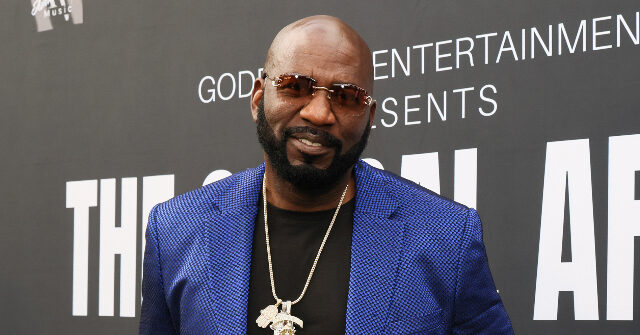Michael “Harry O” Harris, the influential figure behind Death Row Records, has stirred conversation in the hip-hop community by publicly endorsing former President Donald Trump. In an interview with the Washington Post, Harris expressed a belief that Trump would be more beneficial for the economic advancement of Black Americans compared to Vice President Kamala Harris. This endorsement comes at a time when Kamala Harris is struggling to galvanize support from Black male voters, a demographic critical to her campaign. Former President Barack Obama has even stepped in to rally support for her, pointing out that the perceived lack of enthusiasm among Black men might stem from underlying biases.
Harris underscored his support for Trump by highlighting a commitment from the former president to aid the nonprofit organization he co-founded, Community First Action, which aims to foster economic development within Black communities. He mentioned that Trump has shown an intent to collaborate with the organization if elected to the White House again. This partnership is significant to Harris, who has been orchestrating hip-hop concerts in key swing states to raise awareness about the upcoming election and encourage voter turnout among African Americans.
The connection between Harris and Trump dates back to the latter’s presidency, when he granted clemency to Harris after he had been incarcerated for 33 years on drug charges. Recently, Trump publicly endorsed Harris, stating on his social media platform, Truth Social, that Harris is playing a vital role in continuing the work his administration initiated for Black Americans. This solidifies the alliance between the two figures and reflects a growing trend among some in the hip-hop community to align with Trump’s political aspirations.
Harris isn’t alone in his support for Trump; numerous other rappers have also publicly endorsed his candidacy, including Lil Pump, Kodak Black, Azealia Banks, and Chief Keef. This wave of support highlights a notable shift within segments of the hip-hop community, as artists who usually engage with political discourse are now openly aligning themselves with Trump’s campaign. The endorsements, together with Harris’s statements, indicate a growing disconnect between certain artists and traditional Democratic support, especially from the Black community.
Adding to the chorus of Trump’s endorsements, rapper Waka Flocka Flame has reaffirmed his backing for Trump’s re-election bid. On the other hand, sentiments reflecting criticism of Kamala Harris are reverberating through the community as well. Notably, Lord Jamar has openly criticized Harris, questioning her qualifications and suitability for leadership. Such dissent paints a complex picture of the current political climate among Black artists, where support for Republican candidates appears to be gaining traction amidst increasing frustrations with Democratic representation.
Moreover, notable figures like Trick Trick have also taken the stage to endorse Trump, signaling a broader movement within the hip-hop sphere that may influence voter perceptions and decisions in the upcoming election. This confluence of rap culture and political endorsement presents a unique dynamic that could reshape traditional voting patterns in the African American community. As the 2024 elections approach, the intersection of music, culture, and politics continues to evolve, with figures like Michael Harris leading a notable change in the discourse surrounding Black political identity and representation.

